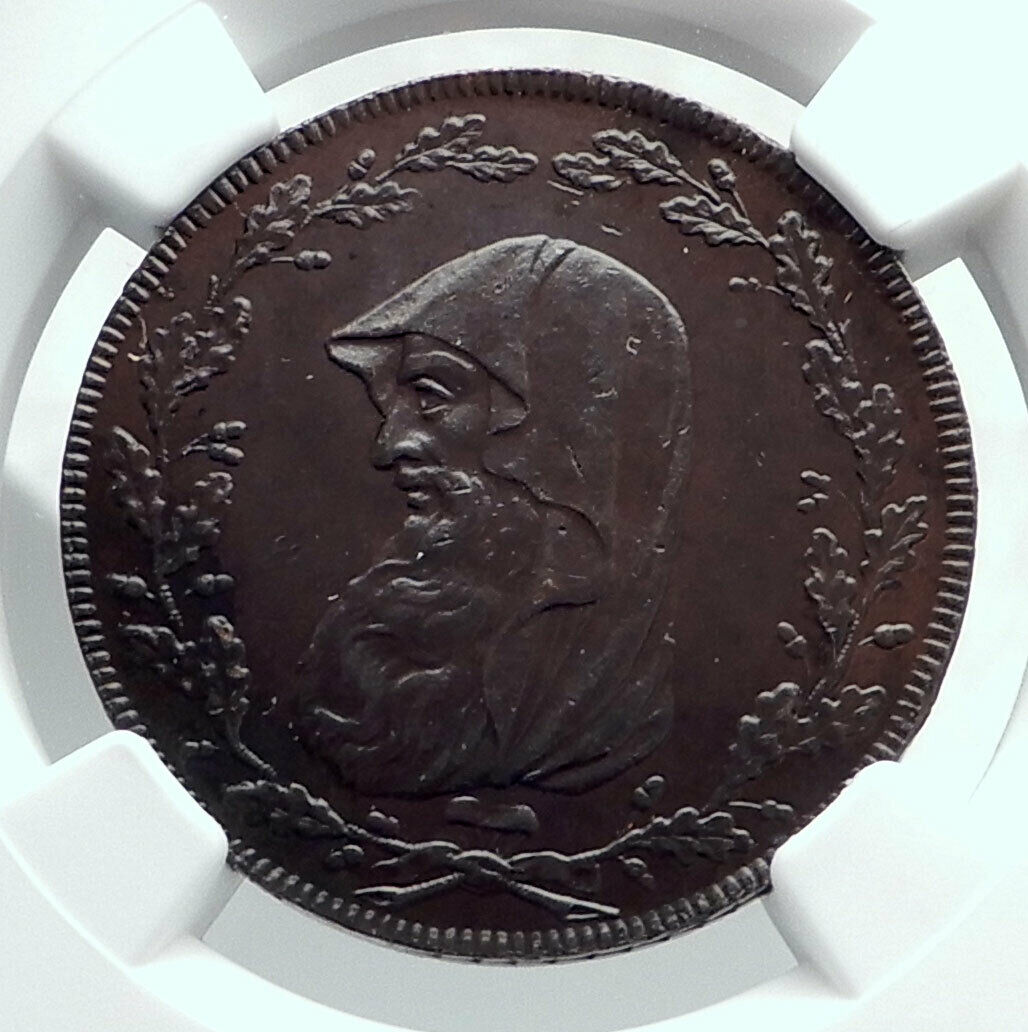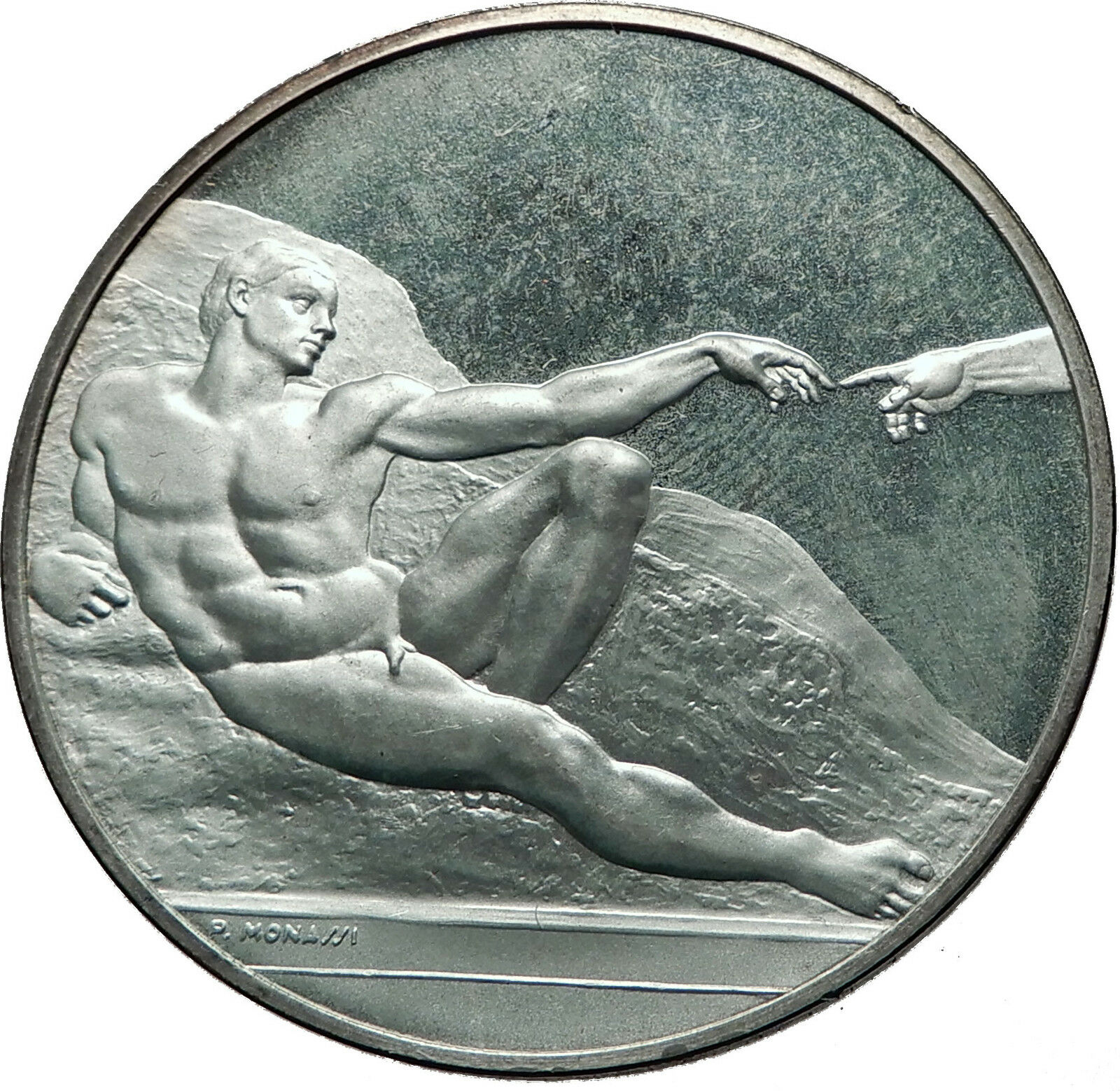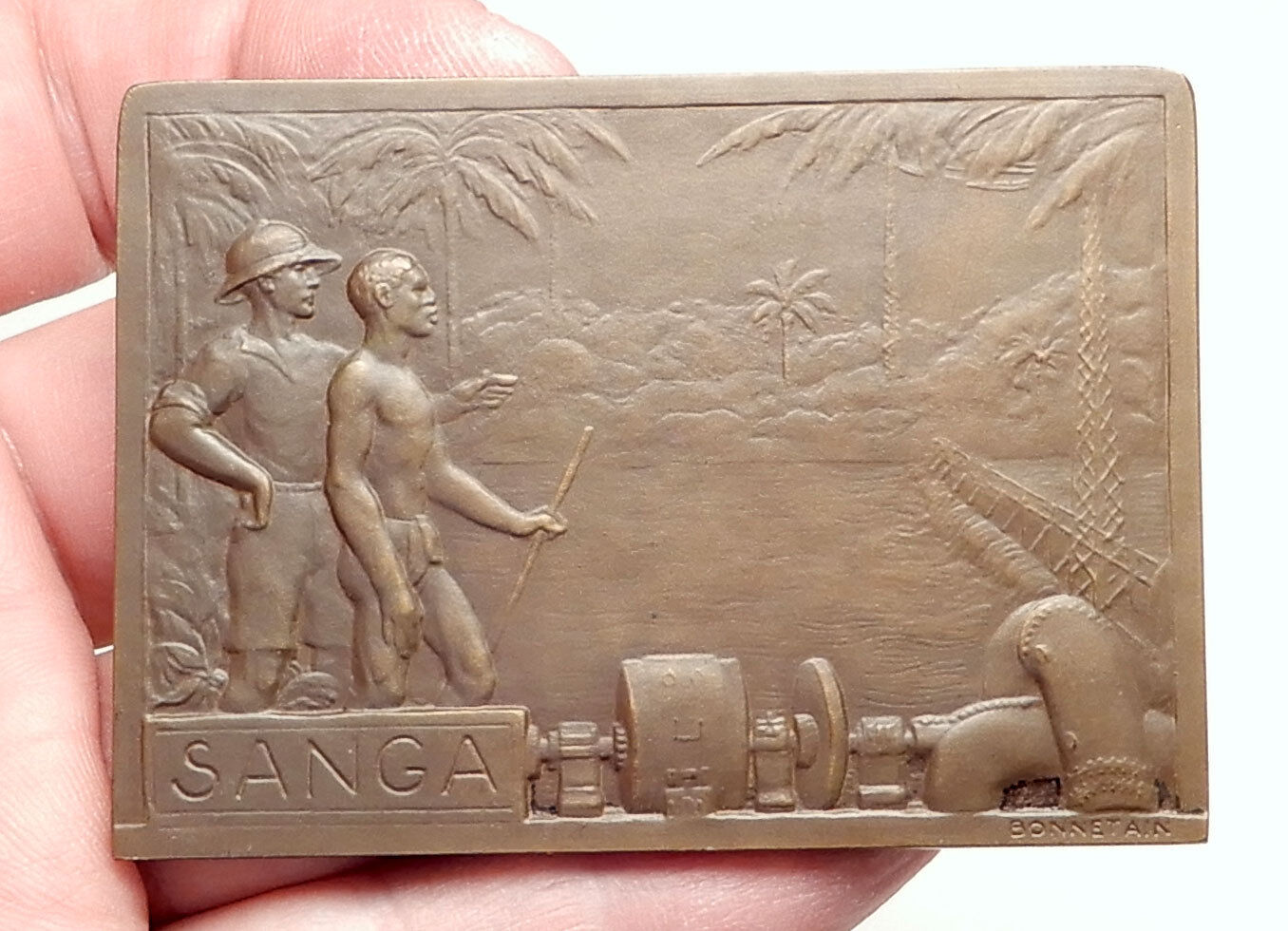|
France time of Louis Philippe I – King: 9 August 1830 – 24 February 1848
Kings of France series, No. 51
Jean (John) II – King of France: 22 August 1350 – 8 April 1364
1830 Copper Medal 33mm (12.60 grams)
Reference: Cf. Collignon 1558 (for larger issue of similar type).
Certification: NGC MS 63 BN 5706343-013
JEAN II• ROI DE FRANCE •, Bust of king Jean II right.
51. NE. 1309. SUCCEDE. 1350. RARE EXEMPLE DE GENEROSITE. MORT. 1364. PROISIENT RACE. P.
You are bidding on the exact item pictured, provided with a Certificate of Authenticity and Lifetime Guarantee of Authenticity.
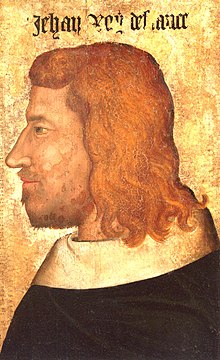 John II (French: Jean II; 26 April 1319 – 8 April 1364), called John the Good (French: Jean le Bon), was King of France from 1350 until his death. John II (French: Jean II; 26 April 1319 – 8 April 1364), called John the Good (French: Jean le Bon), was King of France from 1350 until his death.
When John II came to power, France was facing several disasters: the Black Death, which killed nearly half of its population; popular revolts known as Jacqueries; free companies (Grandes Compagnies) of routiers who plundered the country; and English aggression that resulted in catastrophic military losses, including the Battle of Poitiers of 1356, in which John was captured.
While John was a prisoner in London, his son Charles became regent and faced several rebellions, which he overcame. To liberate his father, he concluded the Treaty of Brétigny (1360), by which France lost many territories and paid an enormous ransom. In an exchange of hostages, which included his second son Louis, Duke of Anjou, John was released from captivity to raise funds for his ransom. Upon his return to France, he created the franc to stabilize the currency and tried to get rid of the free companies by sending them to a crusade, but Pope Innocent VI died shortly before their meeting in Avignon. When John was informed that Louis had escaped from captivity, he voluntarily returned to England, where he died in 1364. He was succeeded by his son Charles V.
_by_Winterhalter.jpg/220px-1841_portrait_painting_of_Louis_Philippe_I_(King_of_the_French)_by_Winterhalter.jpg) Louis Philippe I (6 October 1773 – 26 August 1850) was King of the French from 1830 to 1848 as the leader of the Orléanist party. As a member of the cadet branch of the Royal House of France and a cousin of King Louis XVI of France by reason of his descent from their common ancestors Louis XIII and Louis XIV, he had earlier found it necessary to flee France during the period of the French Revolution in order to avoid imprisonment and execution, a fate that actually befell his father Louis Philippe II, Duke of Orléans. He spent 21 years in exile after he left France in 1793. He was proclaimed king in 1830 after his cousin Charles X was forced to abdicate in the wake of the events of the July Revolution of that year. His government, known as the July Monarchy, was dominated by members of a wealthy French elite and numerous former Napoleonic officials. He followed conservative policies, especially under the influence of the French statesman François Guizot during the period 1840-48. He also promoted friendship with Britain and sponsored colonial expansion, notably the conquest of Algeria. His popularity faded as economic conditions in France deteriorated in 1847, and he was forced to abdicate after the outbreak of the French Revolution of 1848. He lived out his life in exile in the United Kingdom. Louis Philippe I (6 October 1773 – 26 August 1850) was King of the French from 1830 to 1848 as the leader of the Orléanist party. As a member of the cadet branch of the Royal House of France and a cousin of King Louis XVI of France by reason of his descent from their common ancestors Louis XIII and Louis XIV, he had earlier found it necessary to flee France during the period of the French Revolution in order to avoid imprisonment and execution, a fate that actually befell his father Louis Philippe II, Duke of Orléans. He spent 21 years in exile after he left France in 1793. He was proclaimed king in 1830 after his cousin Charles X was forced to abdicate in the wake of the events of the July Revolution of that year. His government, known as the July Monarchy, was dominated by members of a wealthy French elite and numerous former Napoleonic officials. He followed conservative policies, especially under the influence of the French statesman François Guizot during the period 1840-48. He also promoted friendship with Britain and sponsored colonial expansion, notably the conquest of Algeria. His popularity faded as economic conditions in France deteriorated in 1847, and he was forced to abdicate after the outbreak of the French Revolution of 1848. He lived out his life in exile in the United Kingdom.
  France, officially the French Republic (French: République française), is a sovereign state comprising territory in western Europe and several overseas regions and territories. The European part of France, called Metropolitan France, extends from the Mediterranean Sea to the English Channel and the North Sea, and from the Rhine to the Atlantic Ocean. France spans 640,679 square kilometres (247,368 sq mi) and has a total population of 67 million. It is a unitary semi-presidential republic with the capital in Paris, the country’s largest city and main cultural and commercial centre. The Constitution of France establishes the state as secular and democratic, with its sovereignty derived from the people. France, officially the French Republic (French: République française), is a sovereign state comprising territory in western Europe and several overseas regions and territories. The European part of France, called Metropolitan France, extends from the Mediterranean Sea to the English Channel and the North Sea, and from the Rhine to the Atlantic Ocean. France spans 640,679 square kilometres (247,368 sq mi) and has a total population of 67 million. It is a unitary semi-presidential republic with the capital in Paris, the country’s largest city and main cultural and commercial centre. The Constitution of France establishes the state as secular and democratic, with its sovereignty derived from the people.
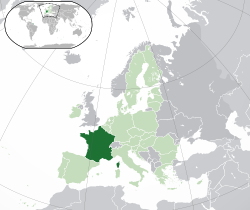
During the Iron Age, what is now Metropolitan France was inhabited by the Gauls, a Celtic people. The Gauls were conquered in 51 BC by the Roman Empire, which held Gaul until 486. The Gallo-Romans faced raids and migration from the Germanic Franks, who dominated the region for hundreds of years, eventually creating the medieval Kingdom of France. France emerged as a major European power in the Late Middle Ages, with its victory in the Hundred Years’ War (1337 to 1453) strengthening French state-building and paving the way for a future centralized absolute monarchy. During the Renaissance, France experienced a vast cultural development and established the beginning of a global colonial empire. The 16th century was dominated by religious civil wars between Catholics and Protestants (Huguenots).
France became Europe’s dominant cultural, political, and military power under Louis XIV. French philosophers played a key role in the Age of Enlightenment during the 18th century. In 1778, France became the first and the main ally of the new United States in the American Revolutionary War. In the late 18th century, the absolute monarchy was overthrown in the French Revolution. Among its legacies was the Declaration of the Rights of Man and of the Citizen, one of the earliest documents on human rights, which expresses the nation’s ideals to this day. France became one of modern history’s earliest republics until Napoleon took power and launched the First French Empire in 1804. Fighting against a complex set of coalitions during the Napoleonic Wars, he dominated European affairs for over a decade and had a long-lasting impact on Western culture. Following the collapse of the Empire, France endured a tumultuous succession of governments: the monarchy was restored, it was replaced in 1830 by a constitutional monarchy, then briefly by a Second Republic, and then by a Second Empire, until a more lasting French Third Republic was established in 1870. By the 1905 law, France adopted a strict form of secularism, called laïcité, which has become an important federative principle in the modern French society.
France reached its territorial height during the 19th and early 20th centuries, when it ultimately possessed the second-largest colonial empire in the world. In World War I, France was one of the main winners as part of the Triple Entente alliance fighting against the Central Powers. France was also one of the Allied Powers in World War II, but came under occupation by the Axis Powers in 1940. Following liberation in 1944, a Fourth Republic was established and later dissolved in the course of the Algerian War. The Fifth Republic, led by Charles de Gaulle, was formed in 1958 and remains to this day. Following World War II, most of the empire became decolonized.
Throughout its long history, France has been a leading global center of culture, making significant contributions to art, science, and philosophy. It hosts Europe’s third-largest number of cultural UNESCO World Heritage Sites (after Italy and Spain) and receives around 83 million foreign tourists annually, the most of any country in the world. France remains a great power with significant cultural, economic, military, and political influence. It is a developed country with the world’s sixth-largest economy by nominal GDP and eight-largest by purchasing power parity. According to Credit Suisse, France is the fourth wealthiest nation in the world in terms of aggregate household wealth. It also possesses the world’s second-largest exclusive economic zone (EEZ), covering 11,035,000 square kilometres (4,261,000 sq mi).
French citizens enjoy a high standard of living, and the country performs well in international rankings of education, health care, life expectancy, civil liberties, and human development. France is a founding member of the United Nations, where it serves as one of the five permanent members of the UN Security Council. It is a member of the Group of 7, North Atlantic Treaty Organization (NATO), Organisation for Economic Co-operation and Development (OECD), the World Trade Organization (WTO), and La Francophonie. France is a founding and leading member state of the European Union (EU).
|









 John II (French: Jean II; 26 April 1319 – 8 April 1364), called John the Good (French: Jean le Bon), was King of France from 1350 until his death.
John II (French: Jean II; 26 April 1319 – 8 April 1364), called John the Good (French: Jean le Bon), was King of France from 1350 until his death. _by_Winterhalter.jpg/220px-1841_portrait_painting_of_Louis_Philippe_I_(King_of_the_French)_by_Winterhalter.jpg) Louis Philippe I (6 October 1773 – 26 August 1850) was King of the French from 1830 to 1848 as the leader of the Orléanist party. As a member of the cadet branch of the Royal House of France and a cousin of King Louis XVI of France by reason of his descent from their common ancestors Louis XIII and Louis XIV, he had earlier found it necessary to flee France during the period of the French Revolution in order to avoid imprisonment and execution, a fate that actually befell his father Louis Philippe II, Duke of Orléans. He spent 21 years in exile after he left France in 1793. He was proclaimed king in 1830 after his cousin Charles X was forced to abdicate in the wake of the events of the July Revolution of that year. His government, known as the July Monarchy, was dominated by members of a wealthy French elite and numerous former Napoleonic officials. He followed conservative policies, especially under the influence of the French statesman François Guizot during the period 1840-48. He also promoted friendship with Britain and sponsored colonial expansion, notably the conquest of Algeria. His popularity faded as economic conditions in France deteriorated in 1847, and he was forced to abdicate after the outbreak of the French Revolution of 1848. He lived out his life in exile in the United Kingdom.
Louis Philippe I (6 October 1773 – 26 August 1850) was King of the French from 1830 to 1848 as the leader of the Orléanist party. As a member of the cadet branch of the Royal House of France and a cousin of King Louis XVI of France by reason of his descent from their common ancestors Louis XIII and Louis XIV, he had earlier found it necessary to flee France during the period of the French Revolution in order to avoid imprisonment and execution, a fate that actually befell his father Louis Philippe II, Duke of Orléans. He spent 21 years in exile after he left France in 1793. He was proclaimed king in 1830 after his cousin Charles X was forced to abdicate in the wake of the events of the July Revolution of that year. His government, known as the July Monarchy, was dominated by members of a wealthy French elite and numerous former Napoleonic officials. He followed conservative policies, especially under the influence of the French statesman François Guizot during the period 1840-48. He also promoted friendship with Britain and sponsored colonial expansion, notably the conquest of Algeria. His popularity faded as economic conditions in France deteriorated in 1847, and he was forced to abdicate after the outbreak of the French Revolution of 1848. He lived out his life in exile in the United Kingdom.
 France, officially the French Republic (French: République française), is a sovereign state comprising territory in western Europe and several overseas regions and territories. The European part of France, called Metropolitan France, extends from the Mediterranean Sea to the English Channel and the North Sea, and from the Rhine to the Atlantic Ocean. France spans 640,679 square kilometres (247,368 sq mi) and has a total population of 67 million. It is a unitary semi-presidential republic with the capital in Paris, the country’s largest city and main cultural and commercial centre. The Constitution of France establishes the state as secular and democratic, with its sovereignty derived from the people.
France, officially the French Republic (French: République française), is a sovereign state comprising territory in western Europe and several overseas regions and territories. The European part of France, called Metropolitan France, extends from the Mediterranean Sea to the English Channel and the North Sea, and from the Rhine to the Atlantic Ocean. France spans 640,679 square kilometres (247,368 sq mi) and has a total population of 67 million. It is a unitary semi-presidential republic with the capital in Paris, the country’s largest city and main cultural and commercial centre. The Constitution of France establishes the state as secular and democratic, with its sovereignty derived from the people.



